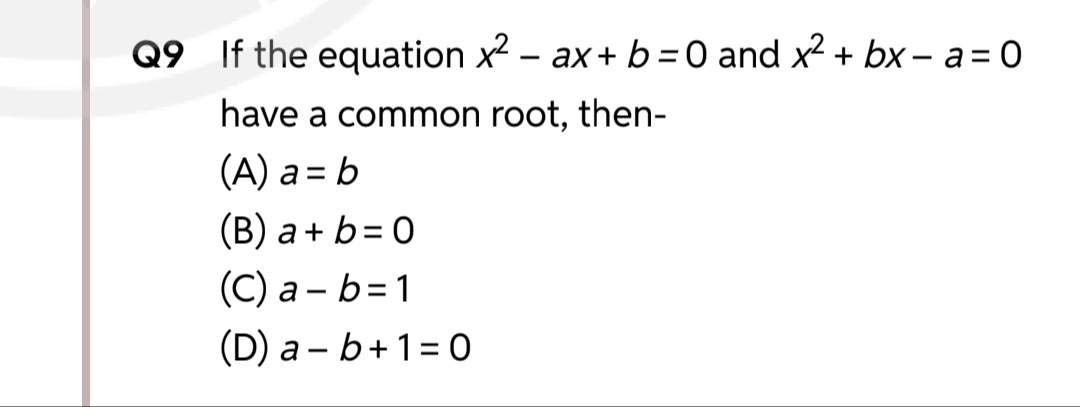Question
Question: If the equation $x^2 - ax + b = 0$ and $x^2 + bx - a = 0$ have a common root, then-...
If the equation x2−ax+b=0 and x2+bx−a=0 have a common root, then-

a = b
a + b = 0
a - b = 1
a - b + 1 = 0
a + b = 0
Solution
Let the common root of the two quadratic equations x2−ax+b=0 and x2+bx−a=0 be α.
Since α is a common root, it must satisfy both equations:
- α2−aα+b=0
- α2+bα−a=0
Subtract equation (2) from equation (1):
(α2−aα+b)−(α2+bα−a)=0 α2−aα+b−α2−bα+a=0 −aα−bα+b+a=0 −(a+b)α+(a+b)=0 (a+b)(1−α)=0
This equation implies two possibilities:
Case 1: a+b=0
If a+b=0, then b=−a. Substituting this into the original equations:
Equation 1: x2−ax−a=0 Equation 2: x2−ax−a=0
In this case, the two equations are identical, meaning they have both roots in common, and thus certainly have "a common root". So, a+b=0 is a valid condition.
Case 2: 1−α=0⟹α=1
If α=1 is the common root, substitute α=1 into equation (1):
12−a(1)+b=0 1−a+b=0 a−b=1
So, if the common root is 1, then a−b=1 is a valid condition.
Therefore, if the two equations have a common root, then either a+b=0 or a−b=1. Both (B) and (C) are presented as options. If it's a single-choice question, it implies one of these must be chosen. Both are mathematically correct derivations. Option (B) implies that the equations are identical, thus having common roots.
